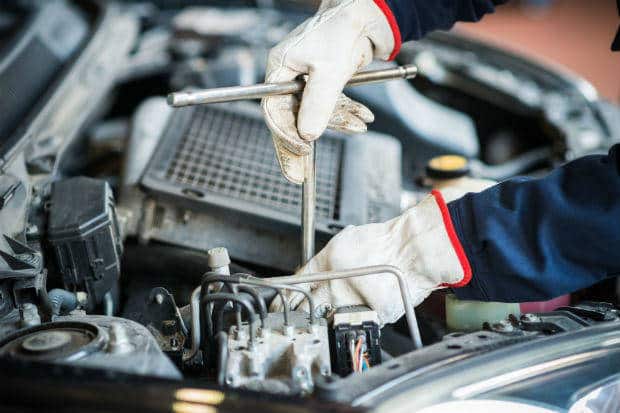
Diploma In Motor Vehicle Mechanic (4 Wheeler) (DMVM)
By NCTA Team Last Updated: January 16, 2026Overview:
The Diploma in Motor Vehicle Mechanic (4 Wheeler) (DMVM) is a one-year certification program offered by the National Council of Training Academy. This course is designed to equip students with fundamental knowledge and practical skills in automobile mechanics, focusing on four-wheeler vehicles.
This program covers various aspects of automobile engineering, including engine systems, transmission, suspension, electrical and electronic components, fuel and emission control systems, and diagnostic techniques. Students will gain hands-on experience through practical training, allowing them to understand real-world vehicle maintenance and repair processes.
The course is open to anyone with a passion for automobile mechanics. It is available at an affordable fee of INR(₹) 12000.00/ USD ($) 285, making quality technical education accessible to all. With an industry-relevant curriculum, practical training, and certification from a reputed training academy, this course is an excellent opportunity for those looking to build a future in the field of automobile mechanics.
Objectives:
This one-year program trains students in vehicle diagnostics, maintenance, and repair. Covering engine systems, transmission, suspension, electronics, and diagnostics, it prepares them for careers in service centers, workshops, or independent auto repair businesses.
Course Curriculum:
Diploma in Motor Vehicle Mechanic (4 Wheeler) course provides students with the necessary skills and knowledge to repair and maintain modern 4-wheeled vehicles. It covers both theoretical concepts and practical training, ensuring that students are prepared to work in the automobile industry. Below is the detailed curriculum:
- Automobile Electrical Systems Theory
- Automobile Engines Theory
- Chassis and Suspension Systems
- Automotive Braking Systems
- Engine Assembly
- Modern Automotive Technology
- Vehicle Diagnostics and Testing
- Practical
Learning Outcomes:
Upon successful completion of this course, students will be able to:
- Understand the fundamentals of automobile mechanics, including electrical and engine systems.
- Diagnose, troubleshoot, and repair common mechanical and electrical faults in four-wheeler vehicles.
- Disassemble, inspect, and reassemble engine components with precision.
- Maintain and service braking systems, transmissions, and suspension components.
- Use diagnostic tools and modern automotive technologies for fault detection and repair.
- Apply industry-standard practices in vehicle maintenance and servicing.
Placement Areas:
Graduates can explore a wide range of career opportunities across multiple domains, including vehicle maintenance, diagnostics, and repair. Key placement areas include:
- Automobile service centers and workshops
- Car dealerships and repair shops
- Vehicle manufacturing companies
- Independent auto repair businesses
- Fleet maintenance and logistics companies
- Automotive parts suppliers and retailers
- Car rental and fleet management companies
- Diagnostic and automotive testing centers
Salary Expectations:
After completing the Diploma in Motor Vehicle Mechanic (4 Wheeler), entry-level technicians can expect to earn INR 2.5 to 4 lakh per year (USD 3,100 to 5,000). With experience, automobile service technicians and engine specialists can earn between INR 3 and 6 lakh per year (USD 3,700 to 7,400). Workshop supervisors and service managers may earn INR 5 to 10 lakh per year (USD 6,200 to 12,400). Self-employed individuals running their own workshops can earn INR 4 to 12 lakh+ per year (USD 5,000 to 14,800+), depending on business success.
Course Features
| Course Code | NCTA-389 |
| Duration | 12 MONTHS/540 HOURS |
| Category | Diploma In Motor Vehicle Mechanic (4 Wheeler) (DMVM) |
| Eligibility | ALL LEVELS |
| Fees | INR(₹) 10000.00/ USD ($) 180 |
To know more about our this course, feel free to call us at:
+91 9733600770Ready to Enroll in This Course?
Start your learning journey today and unlock your potential!
Apply Now for This Course
